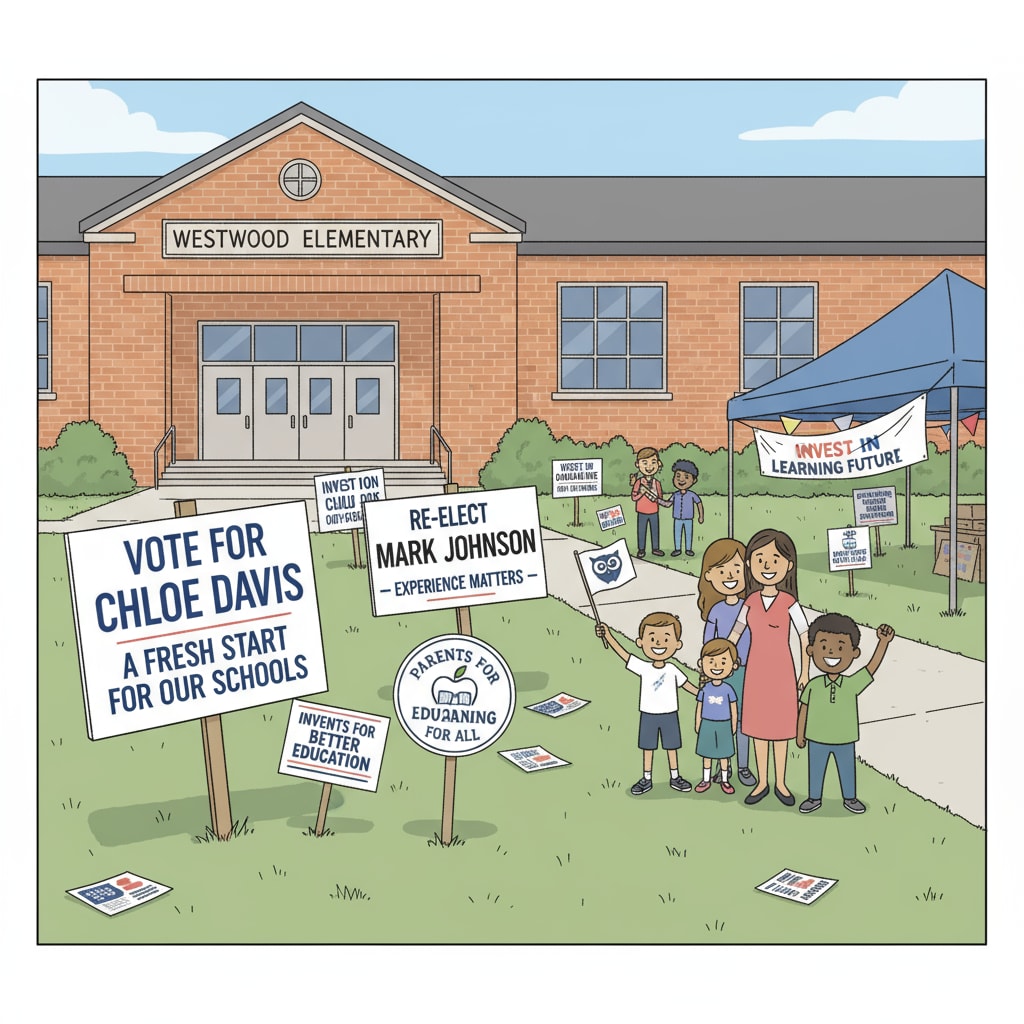The issues of school boards, campaign violence, and political civility have come to the forefront in recent school board elections. In New Jersey, a disturbing incident where a school board candidate ran over an opponent’s campaign sign has shed light on the deep – seated problems in K12 education governance. This incident is not just an isolated act of campaign aggression but a symptom of a larger issue: the infiltration of political polarization into school decision – making processes.

As education is the cornerstone of a society’s progress, it is essential to understand how these political oppositions are influencing our children’s educational environment.
The Infiltration of Political Polarization in School Boards
Political polarization has slowly but surely made its way into school boards. School boards, which are supposed to be focused on student – centered education policies, are now becoming battlegrounds for political ideologies. For example, decisions regarding curriculum, teaching methods, and resource allocation are being influenced by political stances rather than educational needs. According to Education Week’s coverage on school boards, the increasing involvement of political parties and interest groups in school board elections has led to a shift in priorities. Instead of solely concentrating on improving educational outcomes, board members are often divided along political lines, causing delays and inefficiencies in decision – making.

The Consequences of Campaign Violence
Campaign violence, like the sign – running incident in New Jersey, has far – reaching consequences. Firstly, it sets a negative example for students. Children look up to adults in positions of power, and when they witness such aggressive behavior in the context of school board elections, it can erode their trust in the democratic process. Secondly, it disrupts the normal functioning of the election process. Legitimate candidates may be discouraged from participating, and the overall quality of candidates may decline. As a result, the school board may not be composed of the most qualified individuals who can make the best decisions for the students. According to Britannica’s entry on education policy, a stable and civil election environment is crucial for ensuring that the right people are elected to school boards.
Moreover, campaign violence can lead to a breakdown in communication among board members. Once elected, if there are deep – seated animosities from the campaign period, it becomes difficult for board members to work together effectively. This can impede the implementation of important educational initiatives and reforms.
In conclusion, the issues of school boards, campaign violence, and political civility are intertwined and have a significant impact on K12 education. We must strive to restore political civility in school board elections to ensure that our children receive the education they deserve. By promoting respectful dialogue, focusing on educational needs rather than political ideologies, and creating a positive example for students, we can rebuild a healthy school governance model. This will not only benefit the current generation of students but also contribute to the long – term development of our society.
Readability guidance: The article uses short paragraphs to present ideas clearly. Lists could be added in future expansions to further organize thoughts. The passive语态 is kept to a minimum, and transition words like ‘firstly’,’secondly’, ‘moreover’, and ‘in conclusion’ are used to improve the flow.


